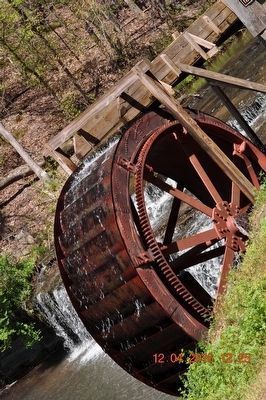 BC pursues wood markets in India as diplomacy takes a back seat to trade. In related news: investors poke around the soon-to-be-closed Crofton pulp mill; while Arcadia Paper Mills plans to open a new mill in St. Helens, Oregon. In other news: in a challenge to the US central bank’s independence over interest rates, the US Administration launched a criminal investigation of federal chair Jerome Powell—roiling markets amid push back. Meanwhile: lumber futures rebounded; US housing starts fell; and custom home building ticked up.
BC pursues wood markets in India as diplomacy takes a back seat to trade. In related news: investors poke around the soon-to-be-closed Crofton pulp mill; while Arcadia Paper Mills plans to open a new mill in St. Helens, Oregon. In other news: in a challenge to the US central bank’s independence over interest rates, the US Administration launched a criminal investigation of federal chair Jerome Powell—roiling markets amid push back. Meanwhile: lumber futures rebounded; US housing starts fell; and custom home building ticked up.
In Forestry news: an Indigenous law firm on how the BC and New Brunswick Aboriginal title decisions compare; Vaughn Palmer writes of BC’s recent forestry court case loss to a First Nation; and UNBC’s Phil Burton’s new book on forestry in the face of uncertainty. Meanwhile: police seek stolen logging equipment in Prince George; Resource Works is angry about the logging equipment fire on Vancouver Island; a self-described forest watchdog alleges illegal logging; a report on the lessons learned from BC’s 2025 wildfire season; and California strengthens its wildfire response approach.
Finally, what the US withdrawal from UN bodies could mean for climate and trade.
Kelly McCloskey, Tree Frog News Editor


 Premier David Eby will lead a trade mission to India promoting British Columbia’s businesses, critical minerals and sustainable wood products, supporting work to build a more independent economy and creating more good jobs for people in British Columbia. … “India is a key market for B.C. with enormous opportunities for trade. This trade mission is about deepening our relationships, supporting good jobs in B.C. and strengthening our position as the economic engine of the new Canadian economy,” Premier Eby said. As India moves toward becoming the world’s third-largest economy, the Premier will highlight opportunities for sustainable forestry, clean energy and responsible mining through new partnerships that are available only in B.C. …During the mission, from Jan. 12-17, 2026, Premier Eby, along with Ravi Kahlon, Minister of Jobs and Economic Growth, will meet with government and business leaders in major centres of commerce and technology, such as New Delhi, Mumbai, Chandigarh and Bangalore.
Premier David Eby will lead a trade mission to India promoting British Columbia’s businesses, critical minerals and sustainable wood products, supporting work to build a more independent economy and creating more good jobs for people in British Columbia. … “India is a key market for B.C. with enormous opportunities for trade. This trade mission is about deepening our relationships, supporting good jobs in B.C. and strengthening our position as the economic engine of the new Canadian economy,” Premier Eby said. As India moves toward becoming the world’s third-largest economy, the Premier will highlight opportunities for sustainable forestry, clean energy and responsible mining through new partnerships that are available only in B.C. …During the mission, from Jan. 12-17, 2026, Premier Eby, along with Ravi Kahlon, Minister of Jobs and Economic Growth, will meet with government and business leaders in major centres of commerce and technology, such as New Delhi, Mumbai, Chandigarh and Bangalore.
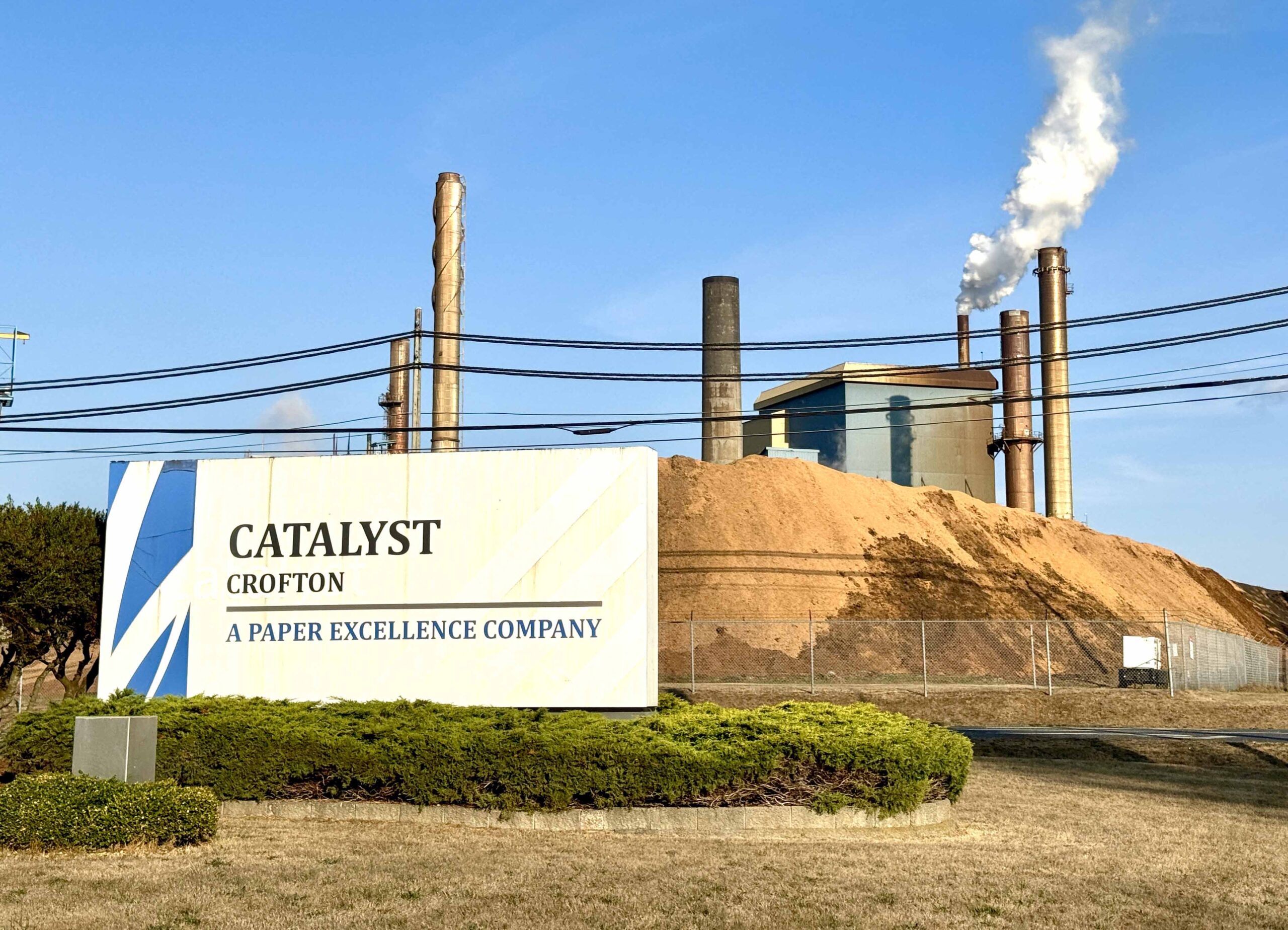 The Municipality of North Cowichan said it is hoping to reopen the Bridging to Retirement Program and lower the eligible age to increase support for workers affected by the Crofton mill closure. Mayor Rob Douglas said he has asked the premier and the minister of forests to work with the federal government to reinstate the program, which was launched in 2021. He said the program is aimed at workers over 55 who do not “relish the idea” of retraining for new careers. “We recognize workers who are in their 50s and 60s are in a tough spot and are able to access pensions,” Douglas said. “For obvious reasons some aren’t too excited about going back and getting retrained to work in a whole different field.” …Douglas said the decision rests with the province and there is no definitive timeline for when workers or the municipality could see results.
The Municipality of North Cowichan said it is hoping to reopen the Bridging to Retirement Program and lower the eligible age to increase support for workers affected by the Crofton mill closure. Mayor Rob Douglas said he has asked the premier and the minister of forests to work with the federal government to reinstate the program, which was launched in 2021. He said the program is aimed at workers over 55 who do not “relish the idea” of retraining for new careers. “We recognize workers who are in their 50s and 60s are in a tough spot and are able to access pensions,” Douglas said. “For obvious reasons some aren’t too excited about going back and getting retrained to work in a whole different field.” …Douglas said the decision rests with the province and there is no definitive timeline for when workers or the municipality could see results.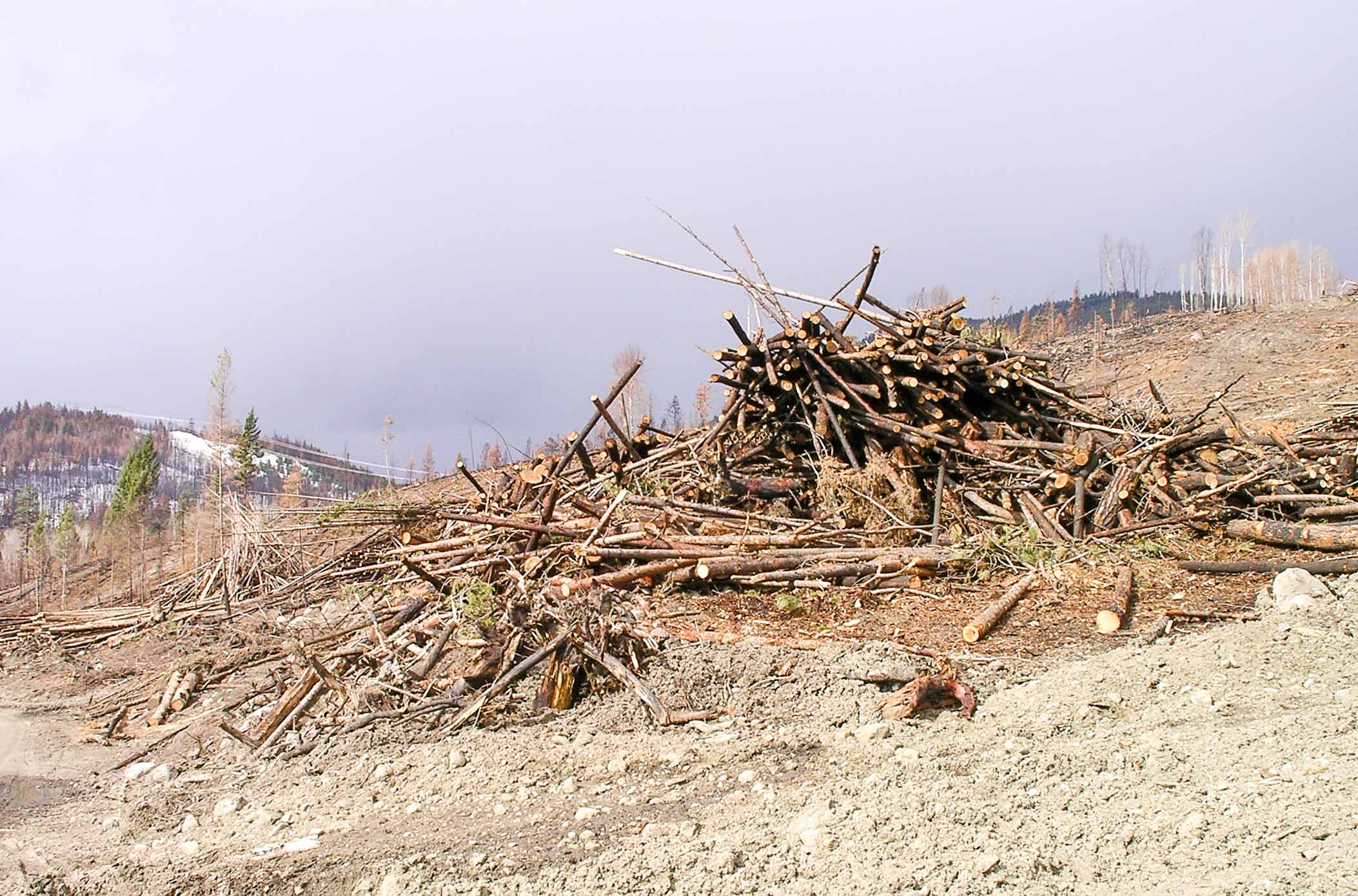 For a town still feeling the loss of its paper mill more than a decade ago, the promise of new industry is tantalizing; 50 or more new jobs, a much-needed boost to the local economy, perhaps a stepping stone to attract new business or help those already here expand. …the plan to build a new $210-million biofuel plant in Fort Frances is coming close to fruition and it could be a game-changer for the region – if it breaks ground this fall as anticipated. After an exhaustive search, the team has settled on the former Resolute mill site for its pilot project, a refinery that can turn the byproducts of logging … into synthetic gas, diesel and aviation fuel. The town is close to an abundant feedstock source, in the heart of a small labour market, owns its own affordable power production and is not far from colleges primed to provide essential training.
For a town still feeling the loss of its paper mill more than a decade ago, the promise of new industry is tantalizing; 50 or more new jobs, a much-needed boost to the local economy, perhaps a stepping stone to attract new business or help those already here expand. …the plan to build a new $210-million biofuel plant in Fort Frances is coming close to fruition and it could be a game-changer for the region – if it breaks ground this fall as anticipated. After an exhaustive search, the team has settled on the former Resolute mill site for its pilot project, a refinery that can turn the byproducts of logging … into synthetic gas, diesel and aviation fuel. The town is close to an abundant feedstock source, in the heart of a small labour market, owns its own affordable power production and is not far from colleges primed to provide essential training.



 Toilet paper…is typically made with trees, energy-intensive manufacturing processes and chemicals that can pollute the environment. Experts say more consumers are seeking toilet paper made from recycled content or sustainable materials, but it can be hard to know what to look for. Sustainable toilet paper often costs more, but can have significant environmental benefits. According to the Environmental Paper Network, a coalition of nonprofits, more than 1 billion gallons of water and 1.6 million trees could be saved if every American used one roll of toilet paper made from recycled content instead of a roll made from forest fibres. Increasingly, manufacturers are making toilet paper from recycled paper products … using chlorine-free bleaching techniques. …Looking for recycled content is a good place for environmentally conscious consumers to start, said Gary Bull, at the University of British Columbia. Preconsumer materials include scrap materials from manufacturing or unsold paper. Postconsumer materials come from used paper products.
Toilet paper…is typically made with trees, energy-intensive manufacturing processes and chemicals that can pollute the environment. Experts say more consumers are seeking toilet paper made from recycled content or sustainable materials, but it can be hard to know what to look for. Sustainable toilet paper often costs more, but can have significant environmental benefits. According to the Environmental Paper Network, a coalition of nonprofits, more than 1 billion gallons of water and 1.6 million trees could be saved if every American used one roll of toilet paper made from recycled content instead of a roll made from forest fibres. Increasingly, manufacturers are making toilet paper from recycled paper products … using chlorine-free bleaching techniques. …Looking for recycled content is a good place for environmentally conscious consumers to start, said Gary Bull, at the University of British Columbia. Preconsumer materials include scrap materials from manufacturing or unsold paper. Postconsumer materials come from used paper products.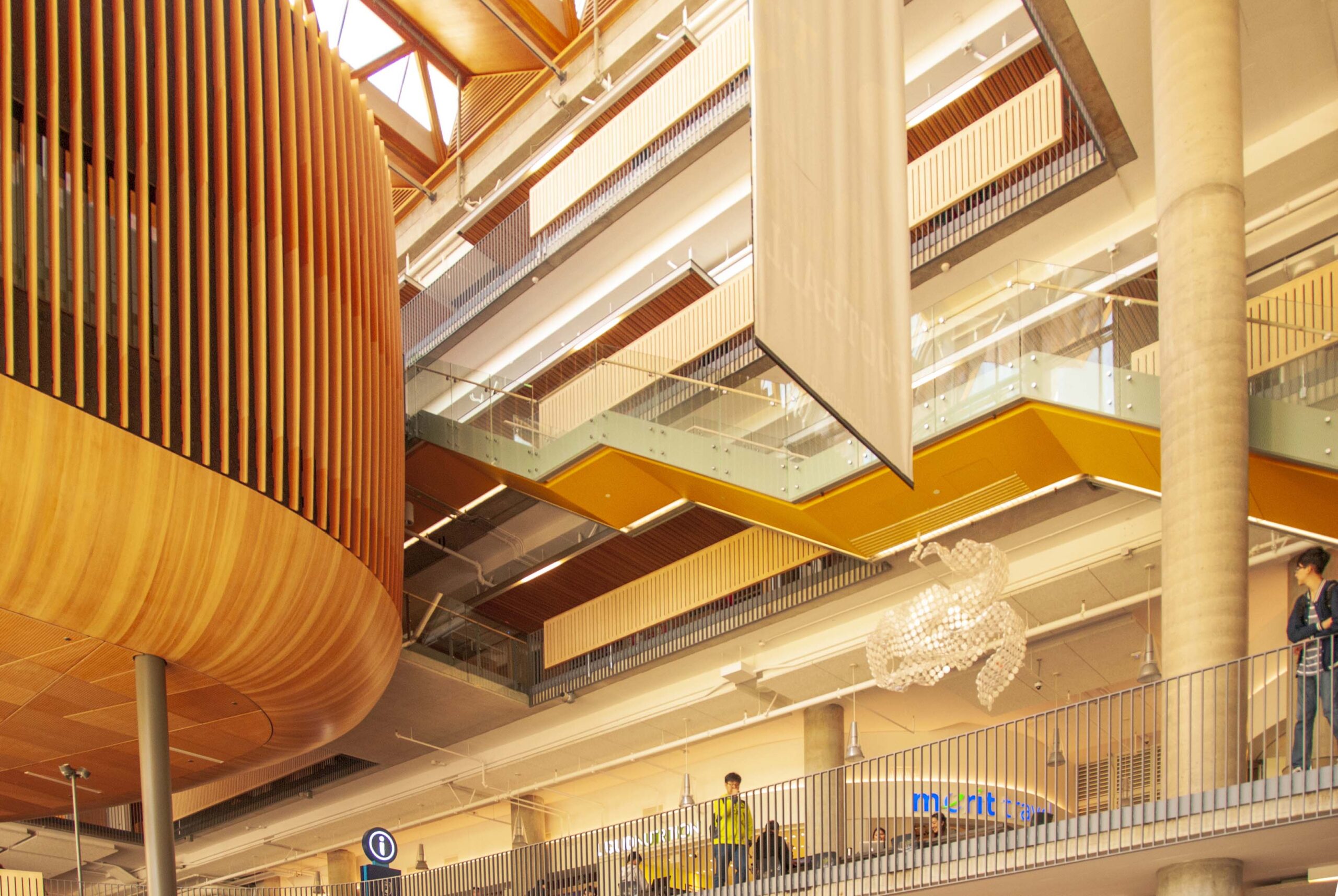 …Biophilia — a concept that’s been introduced in the pages of Health & Home before — is a term coined by the sociologist Erich Fromm and later adopted by biologist Edward O. Wilson in a 1984 book of the same name. Bill Browning, co-founder of the New York City-based sustainability consulting firm Terrapin Bright Green and chair of the Biophilic Institute, defines it as the “innate affiliation of humans to other living organisms and lifelike processes.” …Browning’s firm published a paper in 2022 titled “The Nature of Wood,” which distilled the available research on why people tend to gravitate to wood as a natural material. …Browning’s company has summarized some of biophilia’s high-level takeaways in a paper called “14 Patterns of Biophilic Design: Improving Health & Well-Being in the Built Environment.” In it, they outline how light, water, airflow and even a very primal sense of safety can positively affect cognitive performance as well as our mind-body relationship.
…Biophilia — a concept that’s been introduced in the pages of Health & Home before — is a term coined by the sociologist Erich Fromm and later adopted by biologist Edward O. Wilson in a 1984 book of the same name. Bill Browning, co-founder of the New York City-based sustainability consulting firm Terrapin Bright Green and chair of the Biophilic Institute, defines it as the “innate affiliation of humans to other living organisms and lifelike processes.” …Browning’s firm published a paper in 2022 titled “The Nature of Wood,” which distilled the available research on why people tend to gravitate to wood as a natural material. …Browning’s company has summarized some of biophilia’s high-level takeaways in a paper called “14 Patterns of Biophilic Design: Improving Health & Well-Being in the Built Environment.” In it, they outline how light, water, airflow and even a very primal sense of safety can positively affect cognitive performance as well as our mind-body relationship. Bamboo tissue’s green image fades once you factor in coal-powered manufacturing. Bamboo tissue paper produced in China has become a popular option for shoppers looking to reduce their environmental impact. Despite its green reputation, new research suggests these products may not deliver the climate advantages many consumers expect. In some cases, bamboo tissue may even have a greater environmental footprint than tissue made in the United States. A recent
Bamboo tissue’s green image fades once you factor in coal-powered manufacturing. Bamboo tissue paper produced in China has become a popular option for shoppers looking to reduce their environmental impact. Despite its green reputation, new research suggests these products may not deliver the climate advantages many consumers expect. In some cases, bamboo tissue may even have a greater environmental footprint than tissue made in the United States. A recent 
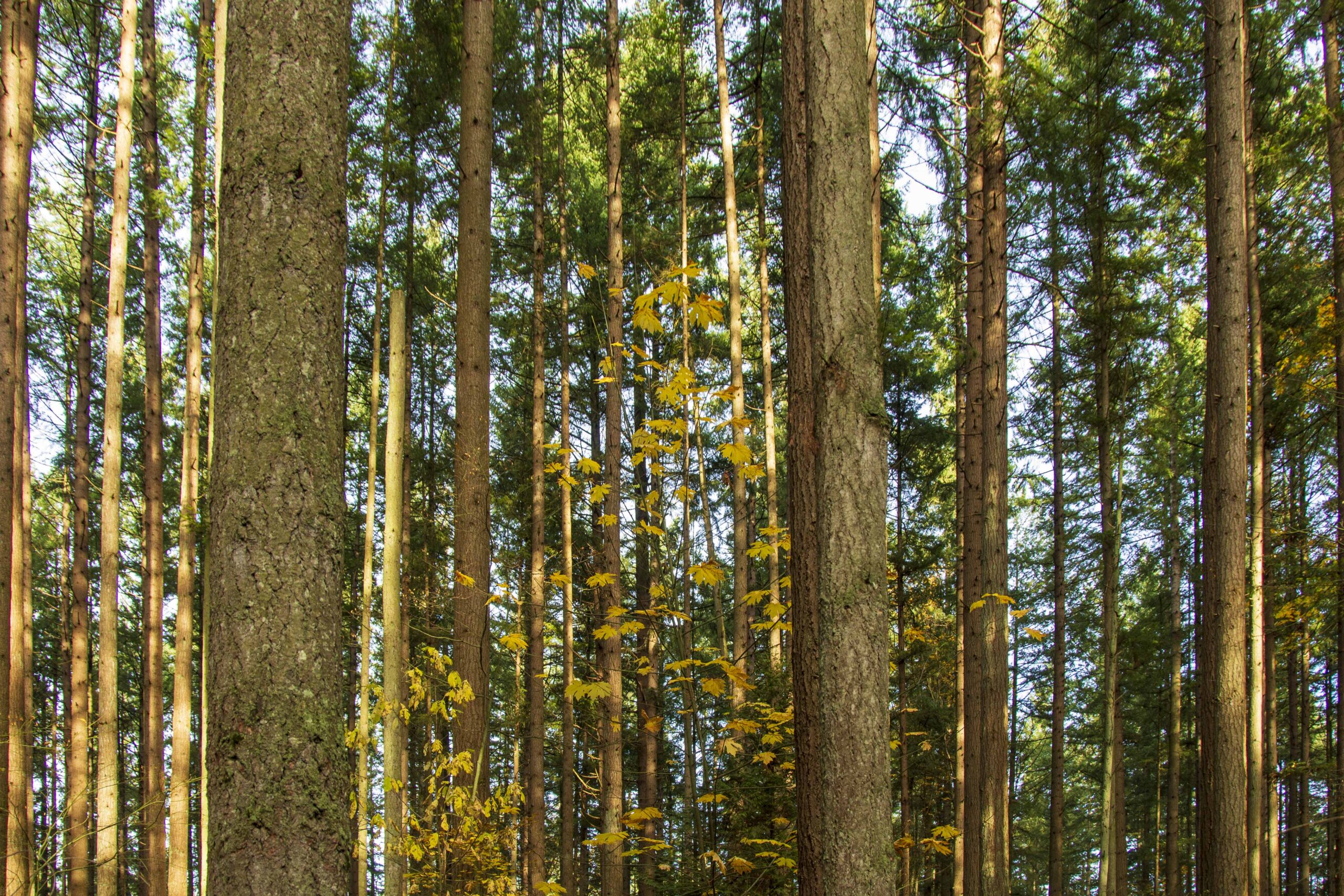 Three pieces of logging equipment owned by Fraser Valley Timber were torched overnight Jan. 1 into the morning of Jan. 2, putting multiple employees immediately out of work and potentially costing the company hundreds of thousands of dollars in replacement costs. …While a company spokesperson suggested to television media that the fire may be linked to nearby anti-logging protests, members of the Ada’itsx/Fairy Creek blockade denied any involvement. RCMP said investigators have not made any connection between the fire and the protest. Blockade members posted on Facebook that to assign blame to them before the facts are known “serves to vilify old-growth forest protectors without grounds.” …the Office of the Fire Commissioner brought an accelerant detection dog to the scene as part of the investigation. “…the Office of the Fire Commissioner is assisting in determining the circumstances, origin, and cause of the fires,” according to the Ministry of Public Safety and Solicitor General.
Three pieces of logging equipment owned by Fraser Valley Timber were torched overnight Jan. 1 into the morning of Jan. 2, putting multiple employees immediately out of work and potentially costing the company hundreds of thousands of dollars in replacement costs. …While a company spokesperson suggested to television media that the fire may be linked to nearby anti-logging protests, members of the Ada’itsx/Fairy Creek blockade denied any involvement. RCMP said investigators have not made any connection between the fire and the protest. Blockade members posted on Facebook that to assign blame to them before the facts are known “serves to vilify old-growth forest protectors without grounds.” …the Office of the Fire Commissioner brought an accelerant detection dog to the scene as part of the investigation. “…the Office of the Fire Commissioner is assisting in determining the circumstances, origin, and cause of the fires,” according to the Ministry of Public Safety and Solicitor General.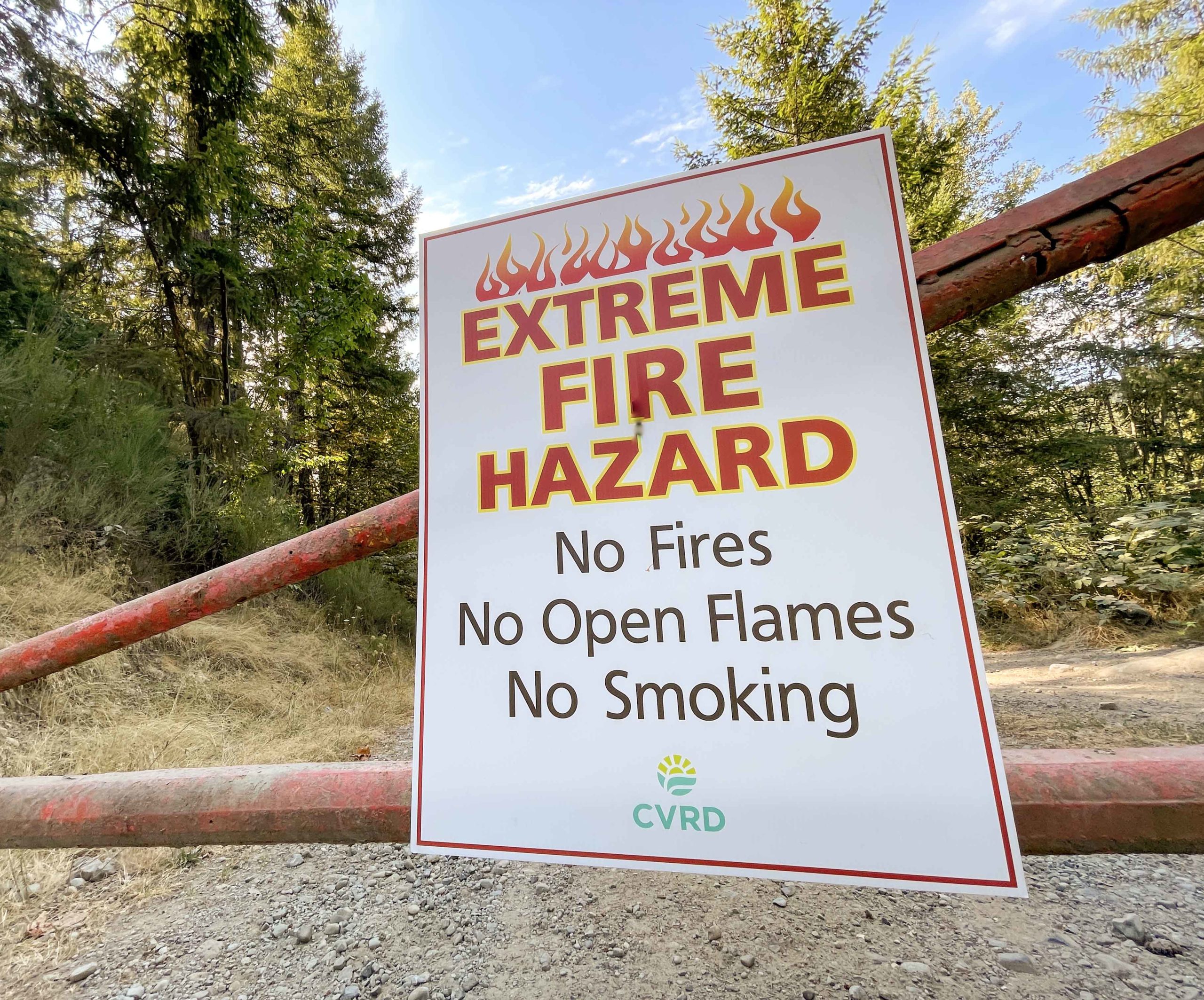 North Cowichan will hire a wildfire specialist to support wildfire-protection planning in the municipality. At its meeting on Dec. 3, council voted to allocate $95,000 in North Cowichan’s budget for 2026 for the position from the Climate Action and Energy Plan’s reserve funds, and funding for the wildfire specialist will come from general taxation in following years. As well, council decided to allocate $115,000 in the 2026 budget for the creation of a Strategic North Cowichan Wildfire Plan, with the funding also coming from CAEP reserve funds. Council adopted a resolution establishing wildfire preparedness as a strategic priority in September, and the key actions identified and recommended by staff since then include strengthening the fire department’s wildfire-response capabilities, vegetation management, FireSmart education, evacuation planning, infrastructure standards, and community volunteer initiatives.
North Cowichan will hire a wildfire specialist to support wildfire-protection planning in the municipality. At its meeting on Dec. 3, council voted to allocate $95,000 in North Cowichan’s budget for 2026 for the position from the Climate Action and Energy Plan’s reserve funds, and funding for the wildfire specialist will come from general taxation in following years. As well, council decided to allocate $115,000 in the 2026 budget for the creation of a Strategic North Cowichan Wildfire Plan, with the funding also coming from CAEP reserve funds. Council adopted a resolution establishing wildfire preparedness as a strategic priority in September, and the key actions identified and recommended by staff since then include strengthening the fire department’s wildfire-response capabilities, vegetation management, FireSmart education, evacuation planning, infrastructure standards, and community volunteer initiatives.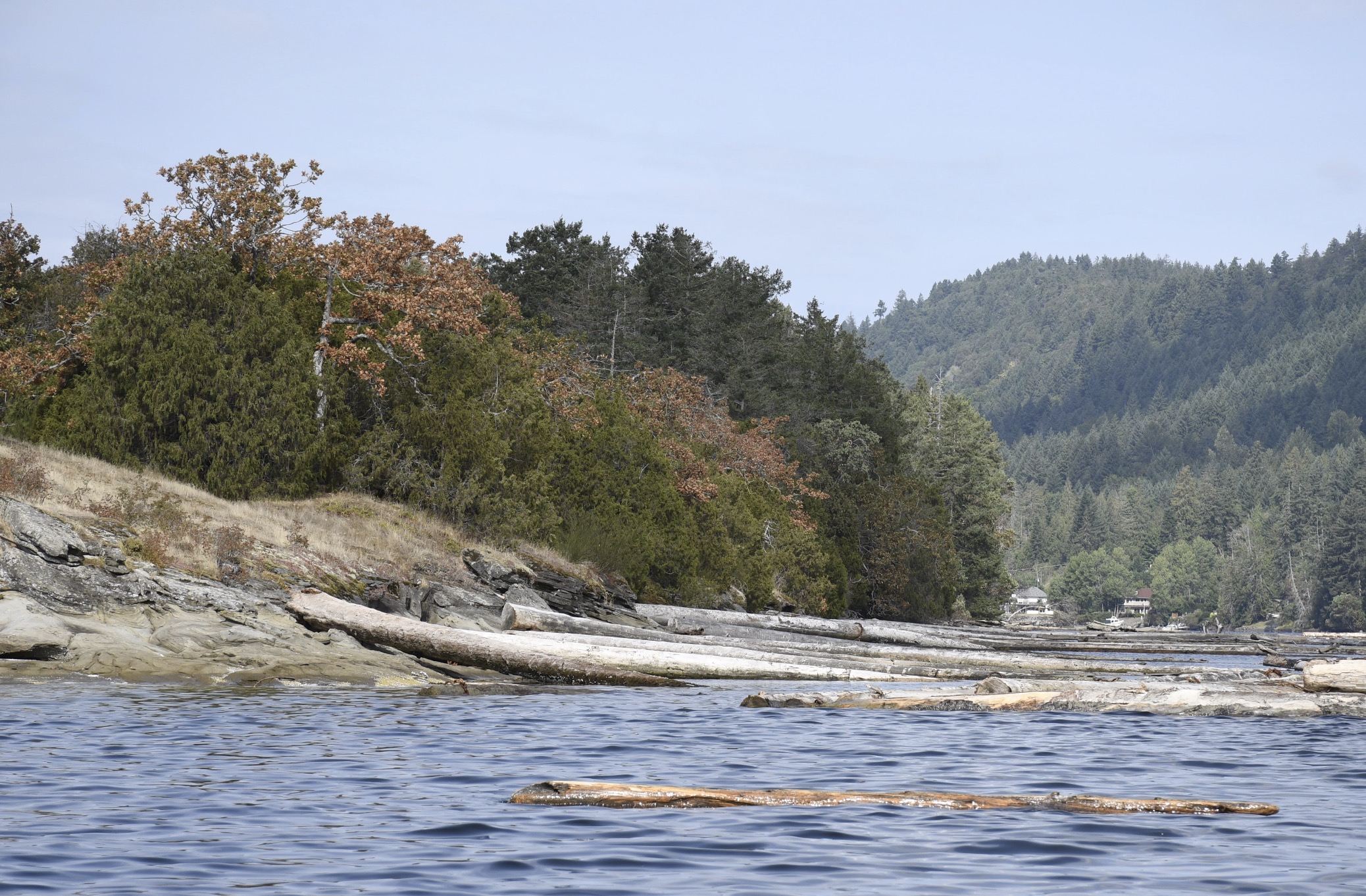 If we’ve reached the point where we’re fretting over barnacles being knocked off by drift logs, perhaps we’ve run out of real crises. A recent University of Victoria study warns that wandering logs — nature’s most passive travellers — are scraping B.C.’s intertidal ecosystems into oblivion. …I mean no disrespect to my academic descendants at UVic — my alma mater — but I can’t help recalling a time when a scientist would distinguish between data and drama. Anyone raised on this coast knows those “thundering” drift logs are as much a fixture of our marine landscape as kelp, rockweed, and yes, barnacles themselves. …Here lies the problem with this kind of “drive-by ecology.” A barnacle count taken on a single day, at a single beach, photographed from orbit, becomes a sweeping “coast-wide phenomenon.” Probability alone tells us that the fraction of shoreline simultaneously blanketed and agitated by free logs — especially those resting on sand — is marginal.
If we’ve reached the point where we’re fretting over barnacles being knocked off by drift logs, perhaps we’ve run out of real crises. A recent University of Victoria study warns that wandering logs — nature’s most passive travellers — are scraping B.C.’s intertidal ecosystems into oblivion. …I mean no disrespect to my academic descendants at UVic — my alma mater — but I can’t help recalling a time when a scientist would distinguish between data and drama. Anyone raised on this coast knows those “thundering” drift logs are as much a fixture of our marine landscape as kelp, rockweed, and yes, barnacles themselves. …Here lies the problem with this kind of “drive-by ecology.” A barnacle count taken on a single day, at a single beach, photographed from orbit, becomes a sweeping “coast-wide phenomenon.” Probability alone tells us that the fraction of shoreline simultaneously blanketed and agitated by free logs — especially those resting on sand — is marginal.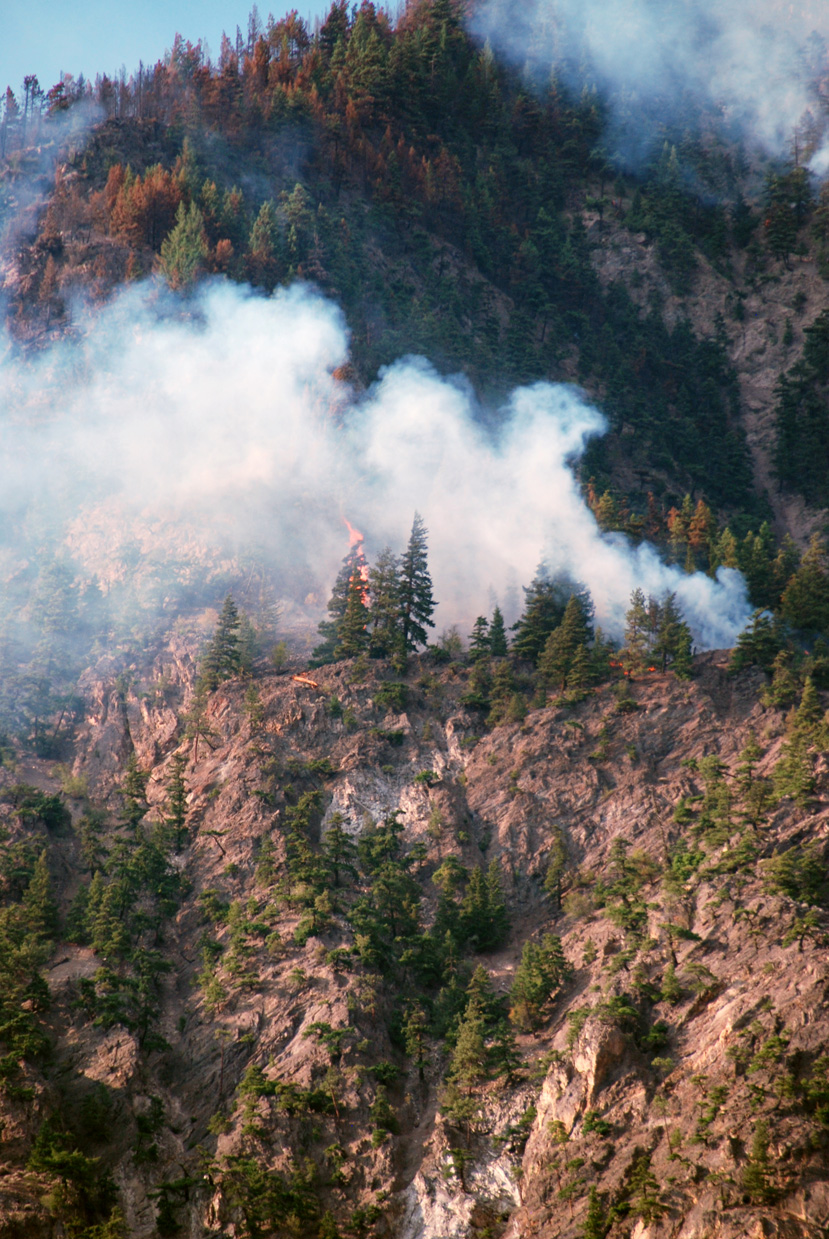 The intense 2025 wildfire season in B.C. means firefighters will face challenges in 2026 because of overwintering wildfires, also called holdover or zombie fires, that smoulder deep underground through the colder season. As they spread below the forest floor in the dried-out peat, the fires can ignite in spring, sparking new life into last season’s devastating blazes. Canada’s 2025 wildfire season was the second-worst on record after 2023, with more than 6,000 fires burning more than 83,000 square kilometres across Canada, according to the Canadian Interagency Forest Fire Centre. In B.C., the season started early because of several zombie fires in the northeast region of the province, where fire officials say overwintering fires and underlying drought combined to create challenging conditions in April and May. …Scientists say climate change is making B.C.’s wildfire season longer and more intense as drought dries out the forest floor and heat waves become stronger.
The intense 2025 wildfire season in B.C. means firefighters will face challenges in 2026 because of overwintering wildfires, also called holdover or zombie fires, that smoulder deep underground through the colder season. As they spread below the forest floor in the dried-out peat, the fires can ignite in spring, sparking new life into last season’s devastating blazes. Canada’s 2025 wildfire season was the second-worst on record after 2023, with more than 6,000 fires burning more than 83,000 square kilometres across Canada, according to the Canadian Interagency Forest Fire Centre. In B.C., the season started early because of several zombie fires in the northeast region of the province, where fire officials say overwintering fires and underlying drought combined to create challenging conditions in April and May. …Scientists say climate change is making B.C.’s wildfire season longer and more intense as drought dries out the forest floor and heat waves become stronger.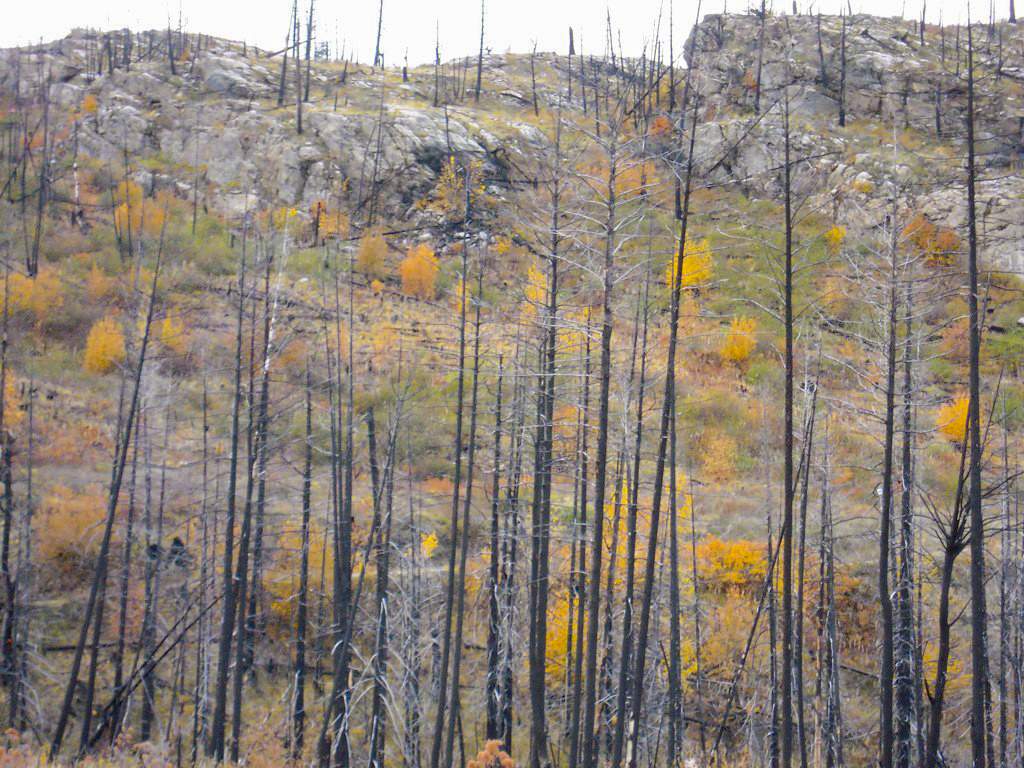 The in-creek infrastructure for the Peachland water treatment plant is at risk of a landslide in the aftermath of the summer’s Munro Lake wildfire. The
The in-creek infrastructure for the Peachland water treatment plant is at risk of a landslide in the aftermath of the summer’s Munro Lake wildfire. The  …council was about to vote to log our protected community forest. At the last moment, a chief saved the day. But we are now forewarned — our forest isn’t protected. …a new council could throw down the gauntlet. So, once again we’re asking ourselves, as a community how do we protect the Six Mountains? Now that we know our North Cowichan council can ignore our public consultation, and our vote for conservation, what can we legally do? In the next election, vote in a pro-conservation council? This is our intention, but there are no guarantees. …an extraordinary solution [exists to] protect ecosystems from human destruction. It’s called the Rights of Nature movement (RoN). …founded on indigenous ancestral reverence for nature, as sacred and sacrosanct, beyond human control and ownership… it’s the perfect solution for our Valley where we, N. Cowichan and Quw’utsun, “own” the legal right to protect the ecosystem surrounding our home.
…council was about to vote to log our protected community forest. At the last moment, a chief saved the day. But we are now forewarned — our forest isn’t protected. …a new council could throw down the gauntlet. So, once again we’re asking ourselves, as a community how do we protect the Six Mountains? Now that we know our North Cowichan council can ignore our public consultation, and our vote for conservation, what can we legally do? In the next election, vote in a pro-conservation council? This is our intention, but there are no guarantees. …an extraordinary solution [exists to] protect ecosystems from human destruction. It’s called the Rights of Nature movement (RoN). …founded on indigenous ancestral reverence for nature, as sacred and sacrosanct, beyond human control and ownership… it’s the perfect solution for our Valley where we, N. Cowichan and Quw’utsun, “own” the legal right to protect the ecosystem surrounding our home.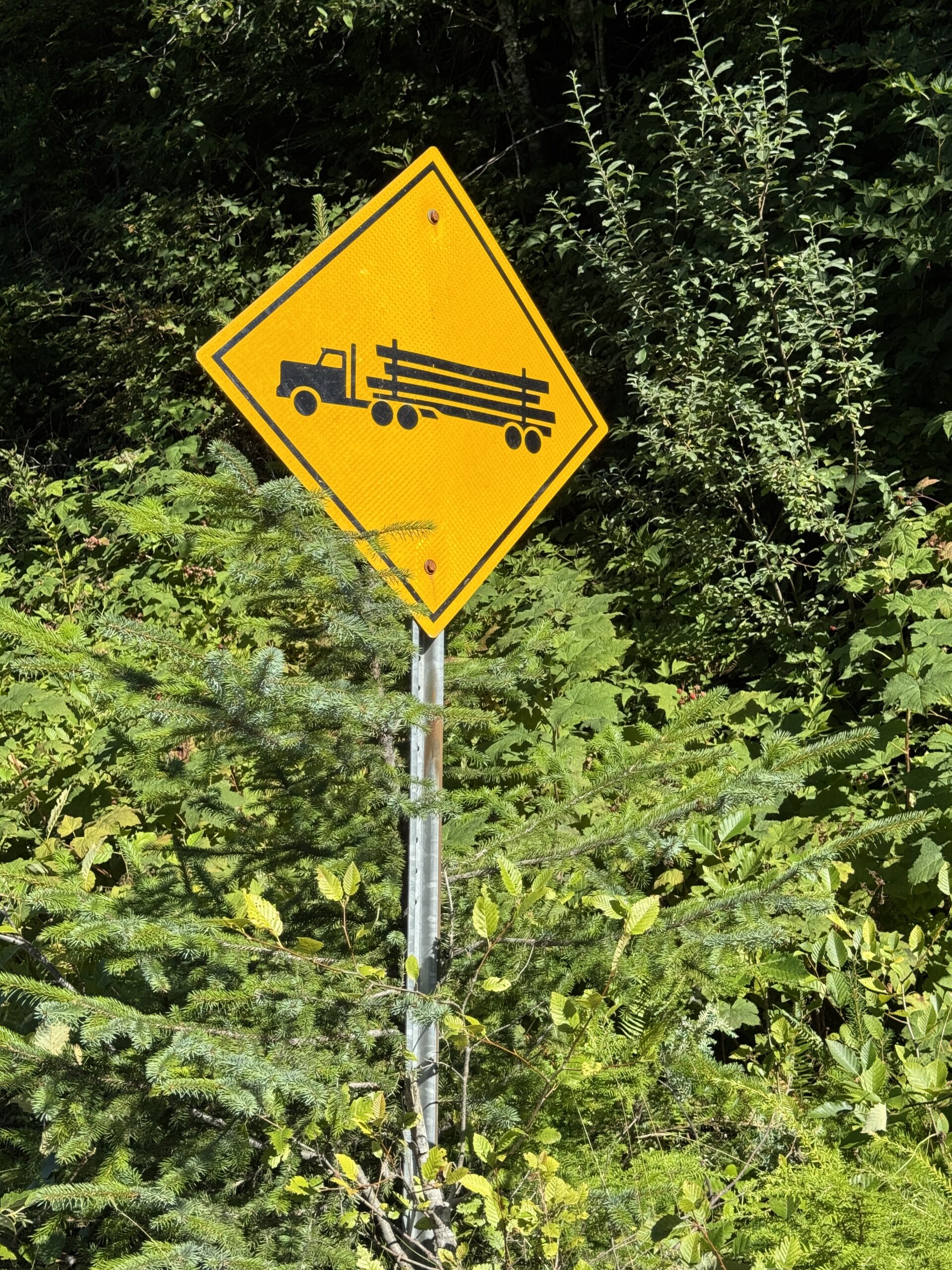 A group protesting old-growth logging on Vancouver Island is hitting out at an “insinuation” they were involved in the suspected arson of logging equipment last week. Sgt. Kevin Mack with Lake Cowichan RCMP says officers responded to the scene of the suspected arson at a site operated by Fraser Valley Timber on Jan. 2, and they are keeping an “open eye to all possibilities.” Two grapple yarders and a log loader reportedly sustained more than $530,000 in damage in the fires… The company did not immediately respond to a request for comment, but media reports quoted a spokesman suggesting that the proximity of the protest camp wasn’t a coincidence. But the Walbran Valley Blockade protest camp says its code “explicitly prohibits violence and the damage or destruction of property.” It says it supports a full and transparent investigation and that “assigning blame before the facts are known serves to vilify forest protectors.”
A group protesting old-growth logging on Vancouver Island is hitting out at an “insinuation” they were involved in the suspected arson of logging equipment last week. Sgt. Kevin Mack with Lake Cowichan RCMP says officers responded to the scene of the suspected arson at a site operated by Fraser Valley Timber on Jan. 2, and they are keeping an “open eye to all possibilities.” Two grapple yarders and a log loader reportedly sustained more than $530,000 in damage in the fires… The company did not immediately respond to a request for comment, but media reports quoted a spokesman suggesting that the proximity of the protest camp wasn’t a coincidence. But the Walbran Valley Blockade protest camp says its code “explicitly prohibits violence and the damage or destruction of property.” It says it supports a full and transparent investigation and that “assigning blame before the facts are known serves to vilify forest protectors.”







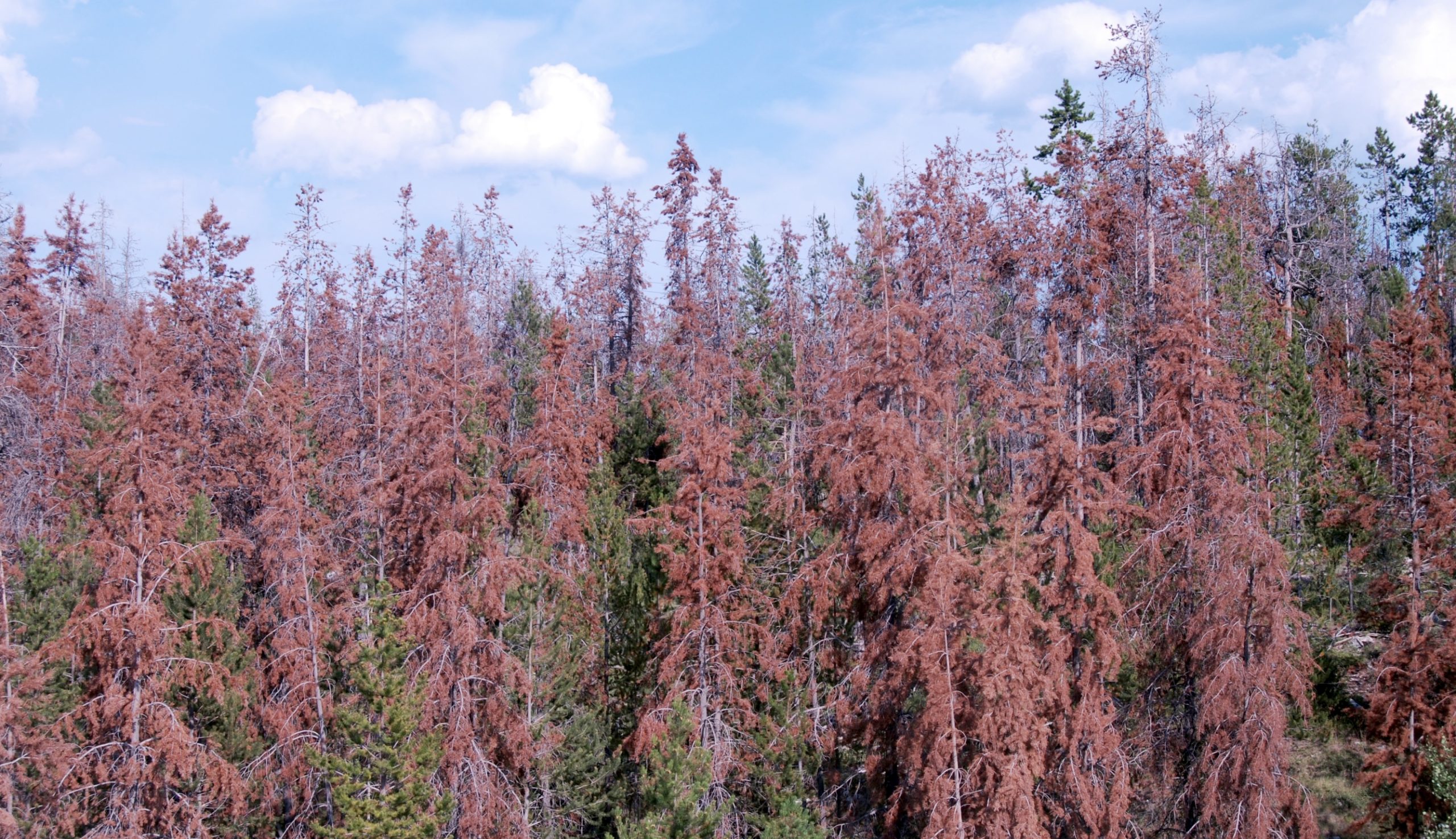 The intense green of spring cannot mask the dead trees in the Harz mountains. Standing upright across northern Germany, thousands of skeletal trunks mark the remnants of a once great spruce forest. Since 2018, the region has been ravaged by a bark beetle outbreak, made possible by successive droughts and heatwaves. …The loss has sparked a reckoning with the modern forestry methods pioneered by Germany that often rely on expanses of monoculture plantations. The ferocity of the beetle outbreak means there is no going back to the old way of doing things: replacing the dead spruce with saplings from the same species would probably guarantee catastrophe once again. Instead, foresters have been experimenting with a different approach: pockets of beech, firs and sycamore have been planted around the surviving spruce to make sure the returning forest is more biodiverse.
The intense green of spring cannot mask the dead trees in the Harz mountains. Standing upright across northern Germany, thousands of skeletal trunks mark the remnants of a once great spruce forest. Since 2018, the region has been ravaged by a bark beetle outbreak, made possible by successive droughts and heatwaves. …The loss has sparked a reckoning with the modern forestry methods pioneered by Germany that often rely on expanses of monoculture plantations. The ferocity of the beetle outbreak means there is no going back to the old way of doing things: replacing the dead spruce with saplings from the same species would probably guarantee catastrophe once again. Instead, foresters have been experimenting with a different approach: pockets of beech, firs and sycamore have been planted around the surviving spruce to make sure the returning forest is more biodiverse. 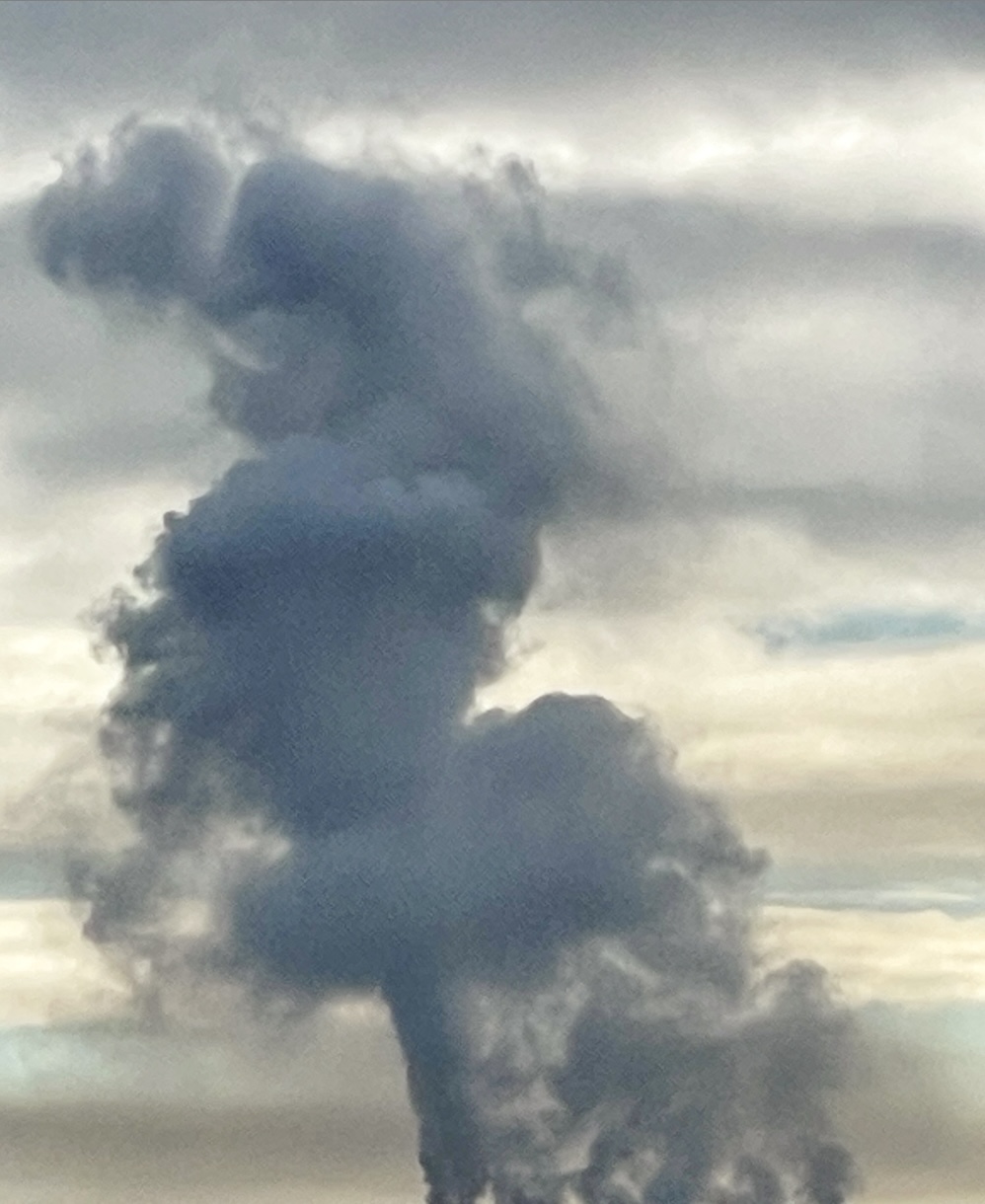 Washington state officials admitted Jan. 6 they overstated by more than 80% how much projects funded by cap-and-trade taxes have reduced greenhouse gases. The Department of Commerce blamed data entry errors for inflating the benefits of eight grants that helped low- and moderate income households buy energy-efficient electric appliances. The state reported in November the eight grants will cut emissions by 7.5 million metric tons and accounted for 86% of all reductions over two years. The actual reduction was only 78,000 tons, according to Commerce. Commerce’s correction confirmed calculations by Washington Policy Center vice president for research Todd Myers. Earlier in the day, Myers posted online that 86% of the purported reductions were “probably fake.” …The Department of Ecology compiled and issued the faulty report. The report was a comprehensive accounting of how 37 state agencies and universities spent $1.5 billion in cap-and-trade taxes during the 2023-25 biennium, Ecology said.
Washington state officials admitted Jan. 6 they overstated by more than 80% how much projects funded by cap-and-trade taxes have reduced greenhouse gases. The Department of Commerce blamed data entry errors for inflating the benefits of eight grants that helped low- and moderate income households buy energy-efficient electric appliances. The state reported in November the eight grants will cut emissions by 7.5 million metric tons and accounted for 86% of all reductions over two years. The actual reduction was only 78,000 tons, according to Commerce. Commerce’s correction confirmed calculations by Washington Policy Center vice president for research Todd Myers. Earlier in the day, Myers posted online that 86% of the purported reductions were “probably fake.” …The Department of Ecology compiled and issued the faulty report. The report was a comprehensive accounting of how 37 state agencies and universities spent $1.5 billion in cap-and-trade taxes during the 2023-25 biennium, Ecology said. The U.S. Endowment for Forestry and Communities (the Endowment) has announced a new collaboration with the Georgia Institute of Technology. This partnership aims to address the far-reaching social, economic and environmental impacts of pulp and paper mill closures across the United States, particularly in the rural South, where these mills have long served as economic anchors. The Endowment and Georgia Tech’s Aerospace Systems Design Laboratory (ASDL) are developing an integrated decision-making dashboard to help policymakers, community leaders and industry stakeholders quantify the effects of mill closures and identify data-driven pathways to offset them through the sustainable use of forestry residues to produce bioenergy, renewable diesel, and sustainable aviation fuel (SAF). Over the past decade, nearly 50 paper mills have shut down nationwide, including major facilities in Georgia, South Carolina, Louisiana, Texas and Ohio.
The U.S. Endowment for Forestry and Communities (the Endowment) has announced a new collaboration with the Georgia Institute of Technology. This partnership aims to address the far-reaching social, economic and environmental impacts of pulp and paper mill closures across the United States, particularly in the rural South, where these mills have long served as economic anchors. The Endowment and Georgia Tech’s Aerospace Systems Design Laboratory (ASDL) are developing an integrated decision-making dashboard to help policymakers, community leaders and industry stakeholders quantify the effects of mill closures and identify data-driven pathways to offset them through the sustainable use of forestry residues to produce bioenergy, renewable diesel, and sustainable aviation fuel (SAF). Over the past decade, nearly 50 paper mills have shut down nationwide, including major facilities in Georgia, South Carolina, Louisiana, Texas and Ohio.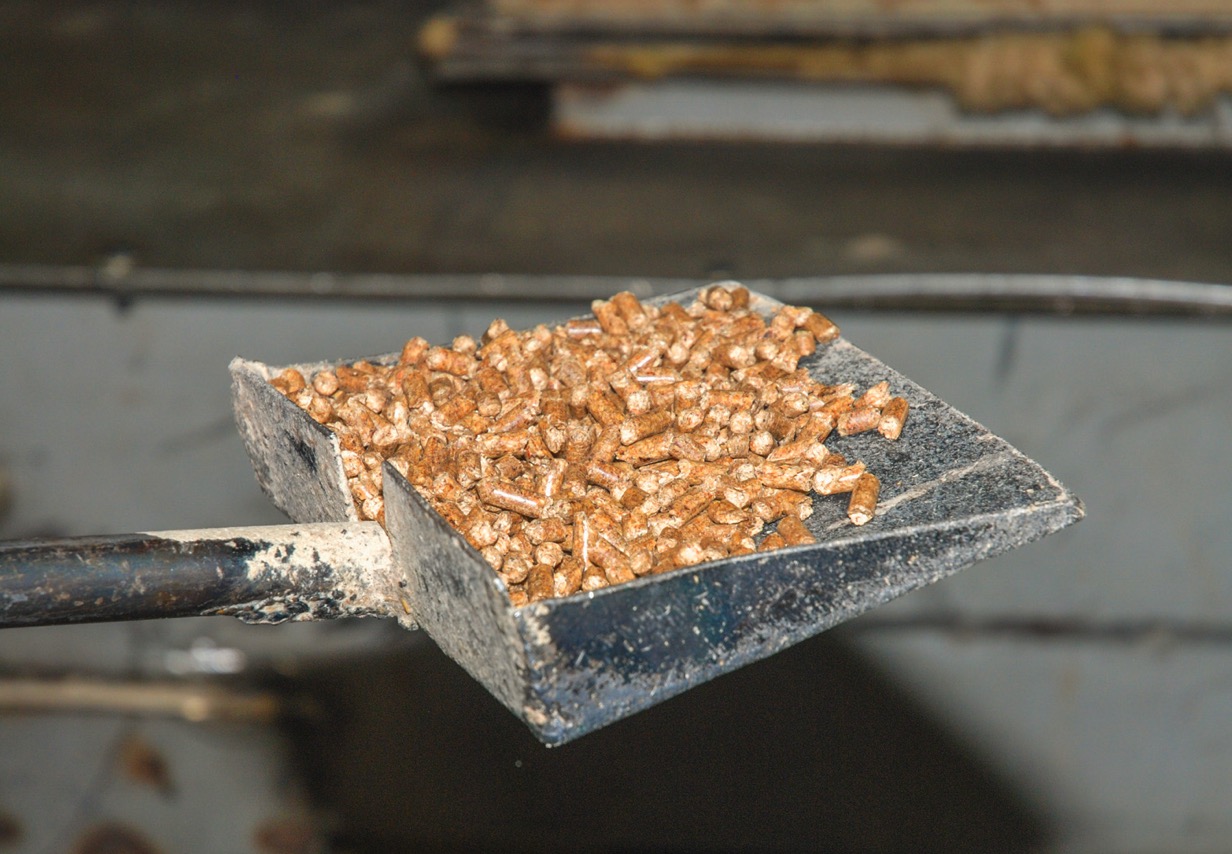 A community-led survey coordinated by the Southern Environmental Law Center across parts of the southern United States has documented concerns about pollution linked to wood pellet manufacturing facilities. The survey focused on areas where residents live near large biomass plants, including a facility in Northampton County, North Carolina. Wood pellet plants process pellets that are exported overseas…where they are burned to generate electricity. While often described as a renewable energy source, the manufacturing process produces dust and emissions that residents say affect air quality and daily life. …[Survey] participants visited households near pellet plants to gather information about health concerns, environmental conditions and quality-of-life impacts associated with nearby industrial activity. According to the survey findings, residents reported respiratory problems, persistent dust, noise and increased industrial traffic. These concerns were most frequently recorded in rural communities and in areas with lower-than-average household incomes.
A community-led survey coordinated by the Southern Environmental Law Center across parts of the southern United States has documented concerns about pollution linked to wood pellet manufacturing facilities. The survey focused on areas where residents live near large biomass plants, including a facility in Northampton County, North Carolina. Wood pellet plants process pellets that are exported overseas…where they are burned to generate electricity. While often described as a renewable energy source, the manufacturing process produces dust and emissions that residents say affect air quality and daily life. …[Survey] participants visited households near pellet plants to gather information about health concerns, environmental conditions and quality-of-life impacts associated with nearby industrial activity. According to the survey findings, residents reported respiratory problems, persistent dust, noise and increased industrial traffic. These concerns were most frequently recorded in rural communities and in areas with lower-than-average household incomes. That fading receipt in your wallet might be more of a problem than you think. For decades, the thermal paper industry, a market valued at around $2 billion, has relied on a chemical cocktail that includes Bisphenol A (BPA). Yes, that is the same BPA that parents worry about in baby bottles and water jugs. It mimics estrogen, messing with our hormones in ways we are only just beginning to understand. While regulators in the EU have cracked down on BPA, manufacturers can pivot to “alternatives” like Bisphenol S (BPS). It sounds different, but chemically, it is the same wolf in sheep’s clothing, exhibiting toxicological properties eerily similar to the villain it replaced. Now, in a new study, researchers have developed a safer, sustainable alternative to BPA-laden thermal paper using “washed” lignin from wood and sugar derivatives. The result is a receipt that prints clearly without disrupting your hormones.
That fading receipt in your wallet might be more of a problem than you think. For decades, the thermal paper industry, a market valued at around $2 billion, has relied on a chemical cocktail that includes Bisphenol A (BPA). Yes, that is the same BPA that parents worry about in baby bottles and water jugs. It mimics estrogen, messing with our hormones in ways we are only just beginning to understand. While regulators in the EU have cracked down on BPA, manufacturers can pivot to “alternatives” like Bisphenol S (BPS). It sounds different, but chemically, it is the same wolf in sheep’s clothing, exhibiting toxicological properties eerily similar to the villain it replaced. Now, in a new study, researchers have developed a safer, sustainable alternative to BPA-laden thermal paper using “washed” lignin from wood and sugar derivatives. The result is a receipt that prints clearly without disrupting your hormones.